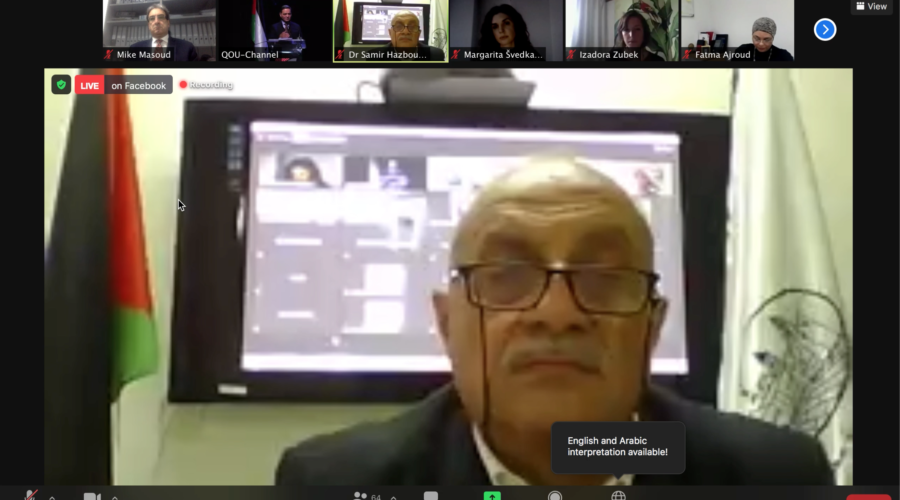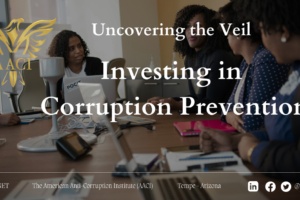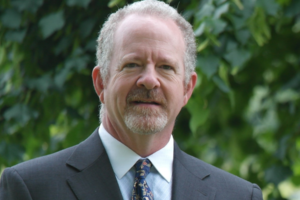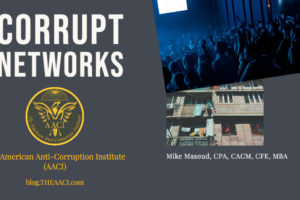Wednesday, December 9, 2020
Beirut – Lebanon
Counsellor Dr. Ahmad al-Barrak
Commissioner of Palestinian Anti-Corruption Commission (PACC)
Your excellencies, delegates, and colleagues,
It is my pleasure to celebrate with you the International Anti-Corruption Day, a day the whole world stands up united saying no to corruption. I already submitted my conference PowerPoint presentation to the conference. Due to the 10 minutes time constraint on my engagement, I shall present herein a precise and concise overview of my paper. 1
The American Anti-Corruption Institute (AACI) defines corruption as “Abuse of power or perceived power or entrusted authority for direct or indirect private monetary or non-monetary gain.” We estimate the annual direct corruption cost in developing countries to be 15% of GDP. The indirect corruption damages are far more significant than the direct ones.
Though corruption exists on this planet since humans started to have power and realized that there is self-interest, many countries, including the Arab countries, admitted recently that corruption exists in their countries. Unfortunately, the fight against corruption in most developing countries are merely slogans that do not have any realization in reality. The logical question is why do developing countries concur that corruption is a serious problem to their development, but they do not fight corruption effectively? The answer to this question is multifaceted and needs more than 10 minutes to discuss. It is impossible to fight corruption with excessive and unjustifiable investment in ignorance. Corruption turned many Arab countries into failed states.
There is a great difference between fighting corruption, managing corruption, or corruption governance.
There is a great difference between fighting corruption, managing corruption, or corruption governance.
Mike Masoud
The American Anti-Corruption Institute (AACI) defines fighting corruption as follows: “It is a process effected by those charged with governance, employees, citizens, and other stakeholders to provide a reasonable assurance that those entrusted with power did not abuse it for a private gain(s). It is holistic, multidisciplinary, encompassing all economic sectors, results-oriented, and continuous. The ten principles of fighting corruption promulgated by The AACI as well as their associated standards form the foundation to institutionalize fighting corruption, money laundering, and financing terrorism.
Though all the Arab countries ratified the United Nations Convention Against Corruption (UNCAC), many countries do not comply with significant provisions of the convention.
We differentiate between individual integrity and institutional integrity. The real and effective fight against corruption based on what is stated above enhances institutional integrity. It also ensures individual and institutional accountability and transparency.
Unless there is clean and transparent leadership, fighting corruption is guaranteed to fail. This applies to all economic sectors, entities, and institutions.
Unless there is clean and transparent leadership, fighting corruption is guaranteed to fail. This applies to all economic sectors, entities, and institutions.
Mike Masoud
Finally, I want to pay tribute to two Palestinian certified public accountants who appreciated from the early days of 2012 the importance of fighting corruption. They are Mr. Sami Dahbour and Mr. Mohammed Akram Hassouneh. Mr. Hassouneh, then the Chairman of the Palestinian Association of CPAs, invited me and the Mr. L. Burke Files, the President of The AACI, to an international conference in Ramallah, Palestine.
In 2012, we asserted in Ramallah at the said conference the crux of what I mentioned above. Moving forward to the day, what happened to the public accounting profession in Palestine and the Arab countries? What happened to the
corruption levels in the private sector? What happened to the investment in anti-corruption education? What happened to levels of nepotism and favoritism? What happened to citizens’ engagement in fighting corruption? What happened to the mistrust gap between the citizens and their governments?
If those who are charged with governance do not have crystal clear answers to these questions, I am afraid to say that the worse did not come yet.
Thank you.
Mike J. Masoud, CPA, CACM, CFE, MBA
Sr. Director
The Middle East and Africa
Footnotes
1 My engagement at the Second International Conference 2020 on “The Integrity, Transparency and Accountability Policies… Theory and Practice” via zoom platform, of the Palestinian Anti-Corruption Commission that was conducted on December 9, 2020.












































